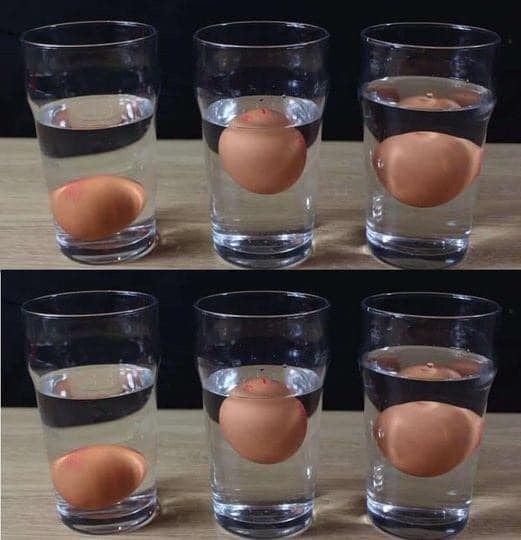Every year, several million eggs end up being thrown away because the expiration date has passed.
Eggs, which are one of the healthy foods to consume as part of a balanced diet, can last for several weeks in the refrigerator.
But over time, the egg can become poor quality, as the air pocket inside expands and the whites thin.
In this article, let’s go over some tips that will help you know if an egg is still good to eat or if it’s expired.
In France, there are nearly 10 million tonnes of food that end up in the trash every year.
People often prefer to throw away food when the expiration date has passed.
Although in France, the number of eggs that end up being wasted remains unknown, the British media The Guardian, which cites the work of the anti-waste community Too good to go, reports that in the United Kingdom, there are 720 millions of eggs that end up in the trash every year.
The main reason for this waste is the fact that 77% of Brits struggle to know if an egg is fresh after it has passed its use-by date.
Do you want to prepare a brunch but you don’t know how long your eggs have been in the fridge? Do not panic. There are ways to know if they are consumable or not:
The eggs you buy at the supermarket all have a recommended use-by date which is indicated on their packaging.
In addition, French regulations require the distributor to no longer sell eggs 7 days before the minimum durability date (Ddm) written on the packaging, as explained on the Femme Actuelle website.
But if you buy eggs from the henhouse, the recommended consumption date is not indicated. Therefore, you should know that the use-by date (Dlc) is a maximum of 28 days after the day of laying.
However, eggs can be stored in the refrigerator for one month past the recommended use-by date, which is 58 days after the day they were laid, if the shells are not cracked or broken. Storing food in optimal conditions helps maintain its freshness, avoid mold and actively fight against food waste.
Compliance with the cold chain and deadlines is necessary to avoid pathogenic organisms that pose a health risk. Thus, putting eggs in the refrigerator helps preserve their taste and nutritional qualities and prevents the growth of bacteria.
However, you should definitely not wash eggs that are not going to be eaten immediately, as this risks causing them to lose the protective film that the hen leaves on them. But if the dates are not shown on the packaging, it is necessary to find other ways to find out if they are expired.
2. Smell the egg
Like fresh products such as cheeses, desserts, crème fraîche, or even yogurts, eggs can have a suspicious smell once the deadline has passed.
So, if you notice that the egg is past its expiration date and you want to keep the product for later consumption, start by smelling it.
Expired food often has an unpleasant odor and should not be eaten. They may have lost their vitamins and have an altered taste.
In addition, perishable food products have a limited shelf life and can be dangerous for your health if the expiration dates are not respected. Expired eggs, whether cooked or raw, may give off a distinctive odor.
If you can’t decipher the label and the smell isn’t enough to tell you something, you can crack the egg into a bowl or salad bowl and smell it, says registered dietitian Taylor Jones. And if the smell puts you off, throw the egg away and wash the container with hot water.
If the smell seems normal to you, you should consume the egg quickly by preparing an omelette for example.
3. Check the appearance of the shell
Continued on next page

